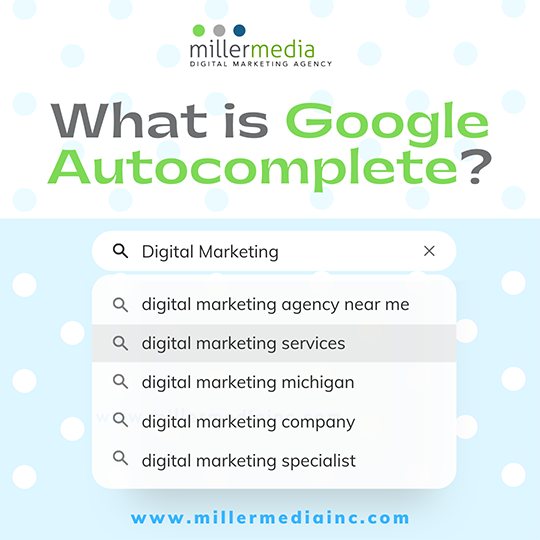Google Autocomplete can be viewed when you type in a keyword into the search box, and you receive a list of keyword prediction before you finish typing the rest of your thoughts. This Google search feature will adjust predictions until you find the term you want to use. The tool’s purpose is to help save time by completing the search query that you had in mind, which is especially useful on mobile devices.
Where Do Google Autocomplete Keywords Come From?
Danny Sullivan, a public liaison for Google search, explains it in his blog post on Google Autocomplete:
“How do we determine these predictions? We look at the real searches that happen on Google and show common and trending ones relevant to the characters that are entered and also related to your location and previous searches.”
Are The Predictions Different in Various Countries?
The country you are in also effects what predictions Google Autocomplete generates. For example, you travel to Michigan, USA for a business conference and need a hotel. The top 3 perditions Google Autocomplete suggests are “hotels in Detroit”, “hotels in Traverse City”, and “hotels in Ann Arbor”. If you change locations, Google will “follow” you, and your Autocomplete options will adjust accordingly.
Are Google Autocomplete Predictions Different for Various Languages?
Predictions differ based on the language(s) you are using to enter queries into Google. If you set your default language to English, you will be shown English predictions. If you decide to add other languages that you understand, say, Spanish and Arabic, you’ll also be shown predictions in those languages.
Does Your Search History Affect Google Autocomplete Predictions?
Google considers your search history when showing predictions when you are logged into your Google account. When you see a prediction that has a “Remove” option next to it, know that this is a prediction based on your search history. If it is removable it shows up as an “X” on the far right. Google remembers that you searched for whatever query but recognizes it may have been a one-time search.
What is the Google Autocomplete Guidelines?
Not all search queries are appropriate to display as predictions. Here are the types of predictions go against Google Autocomplete policy:
- Violence and gore
- Sexually explicit, vulgar, or profane language, though medical and scientific terms are allowed
- Anything related to hate speech or approval of hateful acts
- Sensitive information or terms about named individuals
- Dangerous predictions, meaning searches for things that could allow serious harm to people or animals to happen
Google admits that while they do their best to remove inappropriate predictions. They don’t always get it right and provide a way to report a prediction.
Create a SEO marketing strategy with Google Autocomplete in mind. Call 248.528.3600

